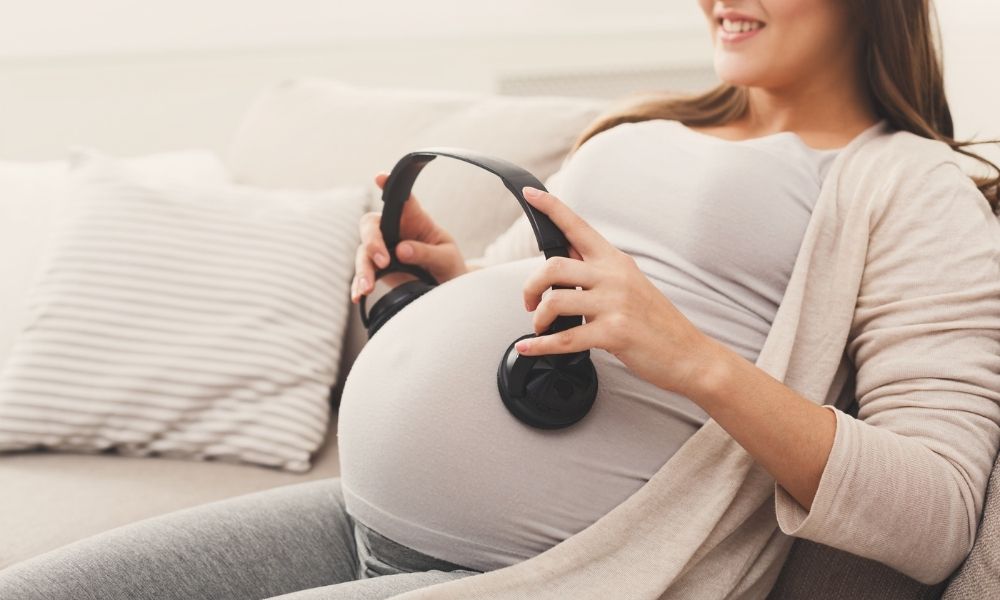Experiencing some apprehension before your first pregnancy scan is perfectly normal, and we're here to provide support through this comprehensive guide. Explore what to anticipate during your first scan, how to prepare, and how your consultants can offer assistance to alleviate any concerns.
When is the first pregnancy scan scheduled?
Typically, the first pregnancy scan occurs between 11 and 14 weeks of pregnancy, though this timeframe may vary. In certain situations, a scan might be performed before ten weeks.
At Window to the Womb, families can rejoice in the opportunity to access private scans starting as early as 6 weeks into their pregnancies. Utilising cutting-edge technology, Window to the Womb provides detailed insights into the earliest stages of foetal development. Whether you seek the reassurance of early pregnancy confirmation or are eagerly anticipating witnessing your baby's first heartbeat, you can experience these heartwarming moments firsthand.
How many pregnancy scans are conducted?
Typically, you'll have two scans during pregnancy, with the second one usually occurring between 19 and 21 weeks. Additional scans may be recommended by your midwife if concerns arise regarding your baby's development.
Why have an ultrasound scan?
While not mandatory, having a first pregnancy scan and anomaly scan is advised (the anomaly scan is a screening scan and looks at your baby in detail). This non-invasive procedure poses no harm to you or your baby and serves several purposes, including:
- Detecting the baby's heartbeat.
- Estimating how many weeks pregnant you are.
- Screening for certain conditions, including chromosomal abnormalities.
- Determining the possibility of multiple pregnancies.
The results of the ultrasound scan are usually communicated shortly after its completion.
What happens in your first pregnancy scan?
During your first NHS pregnancy scan, a trained sonographer will guide you through the process. After arriving and checking in, you'll be asked to lie on your back on an examination table and expose your abdomen. The sonographer will apply ultrasound gel to your abdomen and use a probe to gently move over it, creating images of your baby on a screen. They'll carefully examine your baby's development, checking for important markers like size, position, and heartbeat, while also assessing the placenta and amniotic fluid levels. Throughout the scan, the sonographer will communicate their findings and may take measurements to estimate your baby's age. Once completed, the sonographer will document the results in your medical records, providing you with valuable information about your baby's progress and health.
All information we provide is for educational and awareness purposes only. Any concerns should be discussed with your GP, Midwife or Healthcare Professional.
If you’re trying to conceive (TTC), you probably know that there are certain foods and nutrients that become especially important once you’re pregnant. But nutrition plays a vital role even when trying to conceive, much like laying a strong foundation before constructing a house.
Certain nutrients create that foundation by supporting egg and sperm health (yes, nutrition matters for both partners), hormone balance and creating a hospitable environment for a fertilized egg to implant. In fact, studies show that certain nutrients can help increase fertility and improve success rates for both natural conception and fertility treatments.
In other words, nutrition is a key player in the TTC journey, but getting the right nutrients in the right quantities can be tricky. That’s where supplements come in. Just as you’d take a multivitamin to fill in nutritional gaps for optimal health, fertility supplements can give you that extra nutrient boost.
Choosing supplements for your fertility journey
When choosing a supplement to support your fertility journey, look for science-backed, high-quality ingredients. Our editors are careful to select and partner with brands that use ingredients that have been clinically studied to support fertility. Eu Natural® (pronounced you) covers all those bases and more. We love knowing that Eu Natural® products contain zero artificial additives, binders, or fillers and are lab-tested to ensure purity and potency.

When choosing a supplement to support your fertility journey, look for science-backed, high-quality ingredients. Our editors are careful to select and partner with brands that use ingredients that have been clinically studied to support fertility. Eu Natural® (pronounced you) covers all those bases and more. We love knowing that Eu Natural® products contain zero artificial additives, binders, or fillers and are lab-tested to ensure purity and potency.





.jpg)

.png)
.jpg)

%20copy.jpg)


